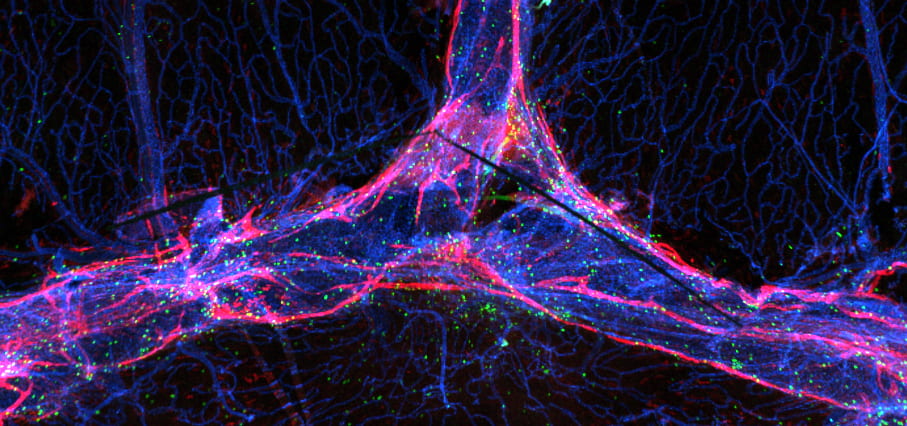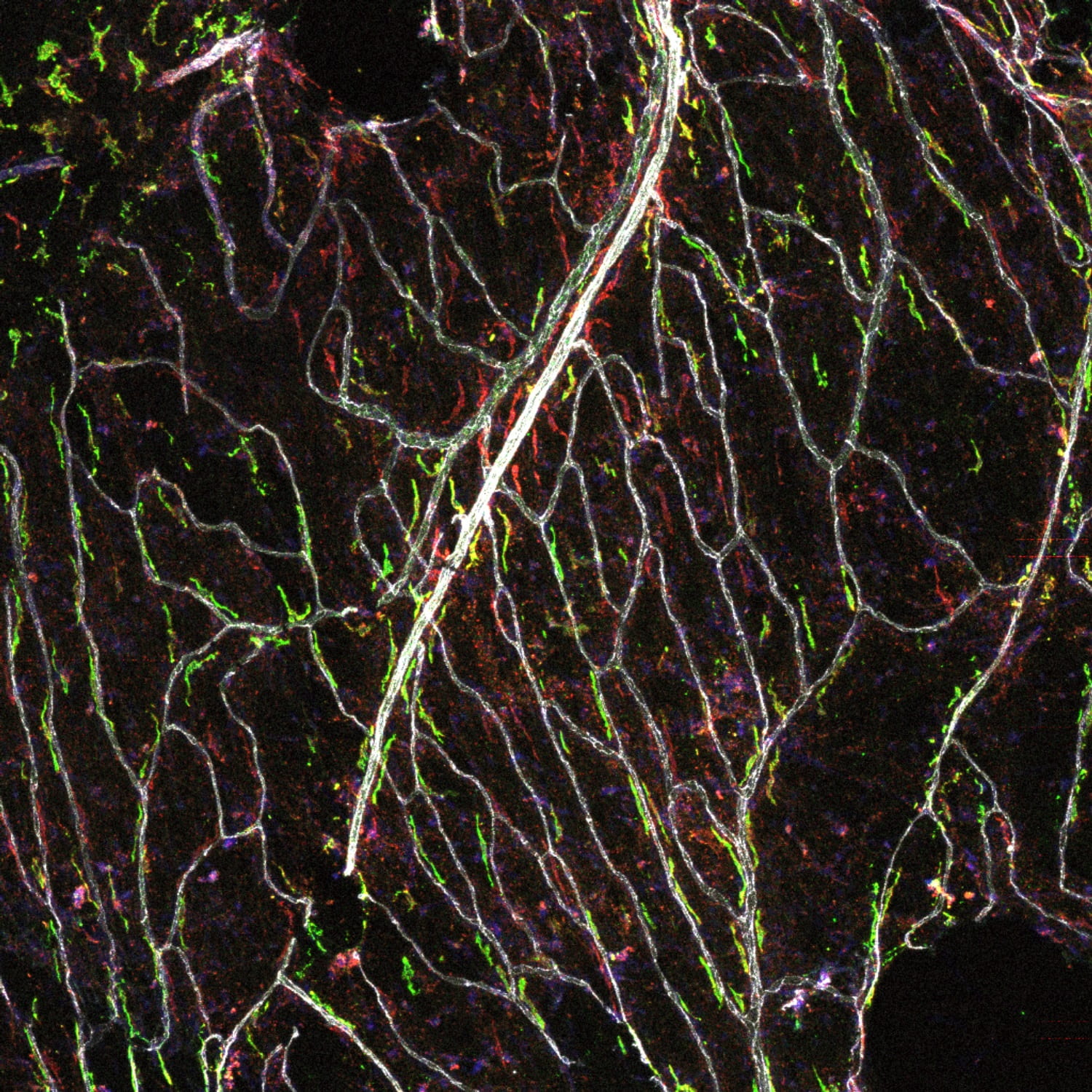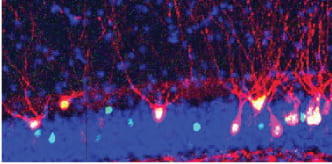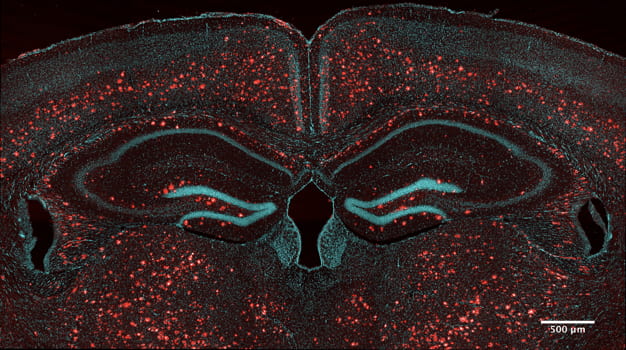We focus on five primary areas of research:

Meningeal Lymphatics
The Central Nervous System (CNS) was historically considered as an immune privileged organ. Key factors contributing to immune privilege were considered to be the blood-brain barrier and the lack of lymphatic drainage of the CNS, which results in a physical disconnect with the immune system. Our lab has shattered the latter assumption by demonstrating the presence of meningeal lymphatics surrounding the brain borders that drain brain-derived molecules into the cervical lymph nodes (Louveau et al., Nature 2015).
In follow up studies, we have demonstrated the importance of these meningeal lymphatic vessels in age-associated cognitive impairment and Alzheimer’s disease (Da Mesquita et al., Nature 2018) as well as in multiple sclerosis (Louveau et al., Nat Neuroscience 2018).
Our ongoing studies focus on therapeutic targeting and genetic manipulation of meningeal lymphatics in different models of neurological disease as well as the extension of our findings to novel patient therapeutics.

CNS Fluid Flow and Waste Clearance
The accumulation of brain “waste”, for example misfolded proteins in neurodegenerative diseases, is a common contributor to neurological dysfunction. Along with lymphatics which drain CSF, glymphatic efflux of brain interstitial fluid, and transport across the blood-brain barrier are critical mechanisms for the clearance of brain waste. Importantly, these pathways appear intimately linked to one another (Da Mesquita et al., Nature 2018).
We are now attempting to decipher the complex relationships between these different flows and generate a holistic understanding of how they maintain homeostasis or contribute to disease. Additionally, we are investigating novel and alternative manipulations to improve CNS fluid flow, with the intent to maintain appropriate waste clearance.

T Cells as Regulators of Brain Function
We are investigating the role that immune cells and molecules play in brain function. The fact that the immune system can affect brain function has been known for decades; however, the mechanisms remain elusive and understudied. Prior research from others largely focused on the negative consequences that immune molecules have on the brain in response to massive peripheral inflammation. These effects include fatigue, sickness behavior, and cognitive impairment.
However, we have demonstrated that immune cells are needed for proper brain function. (Kipnis et al., PNAS 2004; Ziv et al., Nat Neurosci, 2006; Derecki et al., JEM 2010). We are now studying the biology of pro-cognitive T cells and their potential dysfunction as an underlying mechanism in cognitive disorders.

Cytokines as Neuromodulators
As we delved further into the mechanistic interactions between the immune system and the brain, we identified different immune molecules (cytokines) produced by T cells residing within brain borders (meninges). Intriguingly, these can affect critical brain functions by signaling directly through their cognate receptors expressed on neurons. We showed that IFNy affects social behavior (Filiano et al., Nature 2016), IL-17 affects anxiety behavior (Alves de Lima et al., Nat Immunol, accepted) and IL-4 affects memory retrieval (Fu et al., submitted). These results suggest that cytokines function as critical neuromodulators.
Our goal now is to map the entire immune receptor repertoire throughout the brain to predict which cytokines may affect certain behaviors. Toward that end, we are working to decipher the neuro-immune connectome, or the 7th sense (Kipnis, Scientific American 2018).

Immunity and Brain Diseases
Finally, we are interested in neuroimmune interactions associated with spinal cord injury and other CNS trauma (Gadani et al., Neuron 2015) as well as their association with neurological disorders such as Alzheimer’s disease, Parkinson’s disease, multiple sclerosis and others (Da Mesquita et al., Neuron, 2018).
We are striving to unravel the cellular and molecular mechanisms underlying these diseases so that novel neuroprotective therapies can be developed that employ the healing powers of the immune system.